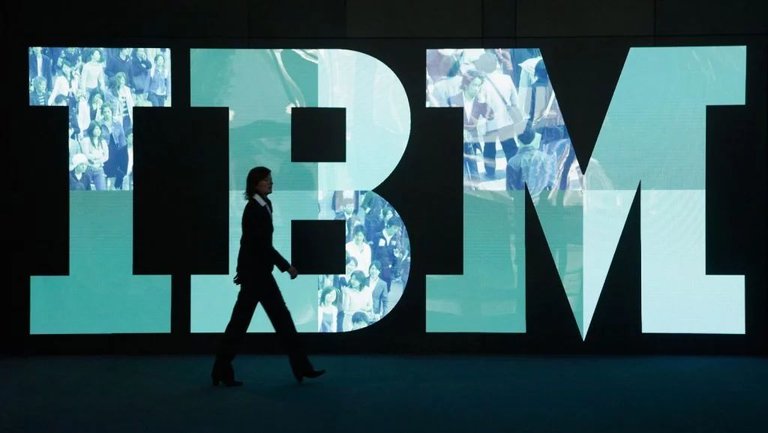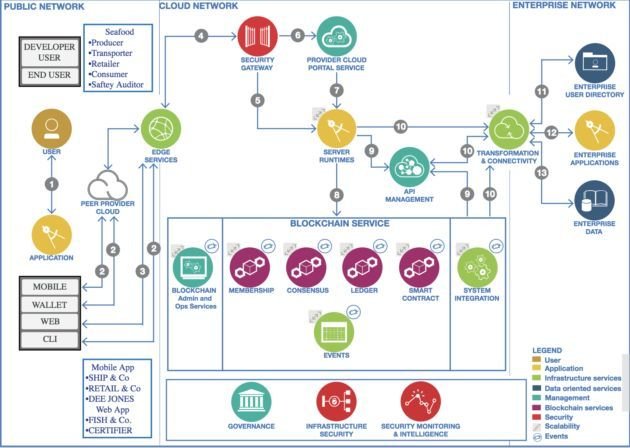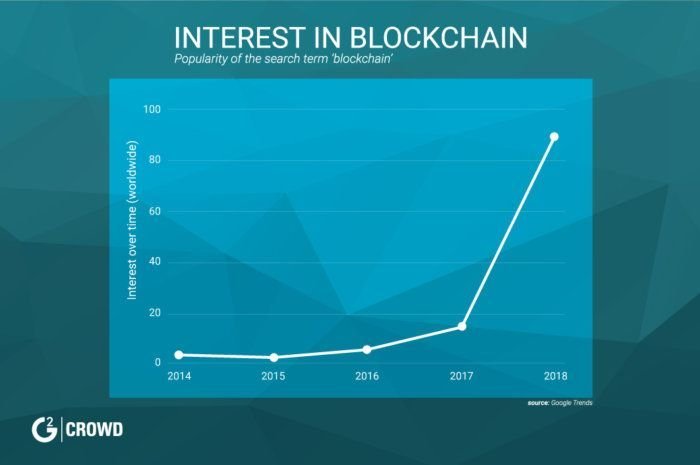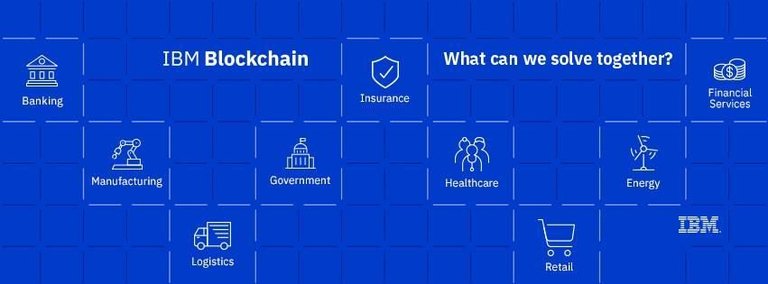Any technology company that has been developing for more than 100 years will struggle to avoid a survival problem in the face of a new wave of technology -- how to update itself safely and quickly. Looking back at the history of human technology, there are countless examples of the importance of this ability to update. Say "blue giant" IBM.

The company, which has a history of 107 years and is regarded as a symbol of American technological prowess, once held the ear of the world's computer industry. Alas, IBM, which specialises in corporate services, has missed out on changes in the mobile Internet. While AI is not as familiar as it is today, IBM's artificial intelligence, Watson, has triumphed over human chess players. But Watson's development has fallen far short of what the public expects of it: its development has been hampered by a lack of clarity in business scenarios. Just last year, Mr. Buffett announced that he would cut back on IBM shares. But if Buffett wait for a few months, he may not make this decision: according to the WinterGreen Research company in the near future, according to a report in the total size of more than $700 million block chain products and services in the market, IBM has become the biggest market share of the company. More data forecast that the market for products and services related to the block chain in 2022 will rise to $7.7 billion from $242 million in 2016.
Now, IBM has rolled out a set of architecture, technology, products, and services for an enterprise-wide block chain. According to an investor briefing released on March 8, IBM now has at least 400 blockchain customers around the world.

Figure 丨 IBM block chain service "panorama" in these customers, there are 63 cooperation with IBM for a particular subject, including 25 global trade company, 14 food company, 14 global payment services company, including Nestle, Visa, Wal - Mart and global well-known enterprises such as HSBC. There was a media description of IBM in the early 1990s: it was "a foot in the grave", like a limping elephant walking slowly toward the swamp. Now it looks like IBM is getting back on its feet with the blockchain.

The Google keyword search in the block chain is soaring "Uber syndrome" and the super-ledgers, and IBM is betting that the blockchain will start with the "Uber syndrome" that swept the world's biggest companies.
In November 2015, IBM released a global top management study, describes the "symptoms" : at the time, Uber is as Shared economic lead soldier full impact of the traditional business system, numerous executives awake at night, worry about Uber tentacles of this kind of company will soon spread to their own turf. Because these "disruptive innovations" tend not to replace traditional ones, they are reshaping the entire industry and occupying the businesses they want to occupy.

But it is not without countermeasures. In this report, IBM offers one of the ways to defend itself against such "intruders" : embracing high-risk, high-reward emerging technologies. Such emerging technologies certainly include blockchains. Think carefully, can actually hit Uber block chain technology theory of this kind of company "Ming: Uber role is allocated in the Shared economic center, it is the algorithm to control all the drivers and the charge, it is essentially a centralized play, if distributed application based on block chain, through the program read complete automation information and transaction, so Uber such once" subversive "will become" subversives." Of course, theory is theory, and practice is often much more difficult. In fact, IBM has been preparing for the Blockchain project Open Blockchain since 2014, but it was not until 2015 that IBM started to explore the commercial application of Blockchain. One of the key steps is to join the HyperLedger, the open source block chain project led by the Linux foundation.HyperLedger is the Linux foundation launched in 2015 open source project, the goal is to let the members work together, to build open platform, accelerate block chain software and systems development, meet the requirements from different industries. The project has received widespread attention since it was first published. IBM as one of the most important participants of HyperLedger early years, now has a total of 35 researchers and software engineers contributing to HyperLedger 44000 lines of code, and boost the super book hatch Fabirc project - a super book framework. The Fabirc project became an important way for IBM to build a reputation in the industry. First, the HyperLedger is one of the most influential block chain open source projects in the world, with more than 100 members, covering industry leaders across the globe, with a quarter of them in China. So in HyperLedger Fabirc this framework is mainly used to run the smart contracts, and implementation technologies and pluggable various business application scenarios, also gradually become the most popular in super book, the most widely used chain blocks the underlying technology solutions.However, IBM has never disclosed the company's investment in the superscript. However, IBM's strategic key on super book project, is indeed get different stakeholders are involved, but also by the organization that you participate in creating block chain industry standard, finally have a chance on the top of the industry. IBM's global block chain distribution director John Wolpert has clearly revealed in a public speech, join HyperLedger goal is to make the ecological system of "all the best idea" into a solution. "We've built pilot projects for every blockchain, and we've been doing it for years. Now, we want to launch a unified platform and announce a partnership with the Linux foundation, "Wolpert said." at this point, we're betting on the block chain." In addition to the open source Blockchain technology, IBM is also participating in the definition of a new market - the Blockchain, or "blockchain-as-a-service". IBM's "blockchain" is a public cloud service that allows customers to develop secure blockchain networks. At the IBM InterConnect 2017 meeting, IBM announced its first commercial application project, IBM OuKuai Lian. The operating framework of IBM Blockchain is Fabric, and based on Fabric, developers can build enterprise applications. IBM Blockchain aims to provide users with end-to-end block chain platform solution, fast to build high block chain net available, you can also provide block chain platform security features, and can be used all over the world.According to IBM, the Fabric block chain can handle more than 1,000 transactions per second. "Blockchain is a relatively new technology, so if you go to GitHub and get some code and install it, you need a lot of code to execute it. For developers, application development and operations can be complex, and many of the existing code bases are incomplete. We want to make things simpler and do our best to get you into the block chain, "said Arvind Krishna, senior vice President and IBM Research director of IBM hybrid cloud. Very interesting is that IBM building block chain technology is different from general block chain, they have developed a new consensus algorithm, this algorithm requires not only ensure privacy protection, and ensure to review. Because companies and partners need not only to share data and information efficiently, but also to keep it confidential when necessary. According to IBM in 2016 revealed that block chain strategic scheme, next, IBM will put a chain of the block (BaaS) integrating with the company's existing projects, such as IBM Z (the core of the world's top 100 Banks IT systems), Watson, Internet of things platform, etc. So where is IBM's block chain now expanding? Readers who follow the blockchain will surely find that most of the recent news that organizations and companies are collaborating in the area of blockchain is IBM. However, according to incomplete statistics, we found that IBM has been involved in the fields of traceability, cloud services, foreign trade, finance, health care, etc., and it cannot be overestimated.

Figure 丨 of IBM's chain block, although the industries hit of the chain block is more associated with monetary start-ups and encryption, but according to IBM's client list, many international big companies also began to embrace the technology. Meeta Vouk, chief digital officer of the IBM blockchain, has also said that IBM and cryptocurrency remain at a distance, focusing only on the blockchain technology itself, which can have a lot of applications. And both in HyperLedger open source project, and after the launch of the BaaS, the indications are that IBM does on numerous industries across the block chain applications in the field of exploration, and looking for more Allies almost current IBM block chain strategy is the most prominent feature. IBM's open source team is also closely associated with its blockchain, BaaS. IBM currently has 380, 000 employees, including a small team working on blockchain technology. , of course, the small is only relative to the number 380000, in fact, the team focused on block chain number as many as 1500 people (the number is a lot of incomparable start-up), covers the IBM is currently in block chain professionals in the global more than 10 offices. Among these employees, most are working to expand IBM's BaaS, while continuing to drive the superbook Fabric project.Although the blockchain technology itself has decentralized features, IBM is seizing the opportunity to become the center of this decentralized technology. Who wins? However, eyeing the chain as a service "blocks" of potential business opportunities, certainly not IBM cloud computing each big manufacturers have begun to fight, hope in the same block chain + cloud services to get a foothold in the new revolution. Susan Eustis, CEO of Research firm WinterGreen Research, has said that accelerating the expansion of the block chain will drive sales of cloud services, databases and server vendors. In this process, IBM has successfully entered the game as a technology supplier. As the first chain saw blocks the prospects of one of several large companies, IBM is to rent out 60 data center to other companies around the world, open some chain block application source code, and allow startup free trial block chain services in the cloud. "Our sales department can't love the Blockchain more, because the Blockchain offers a composite business opportunity," says Jerry Cuomo, vice chairman of IBM OuKuai Lian. Several companies in a supply chain can share a block chain system, and if we do one of them, the company will be able to help us with effective stealth propaganda. Of course, the advantage of blockchain in security and reliability is also a big reason for its popularity in the business world.First, transactions are hard to undo or change after being recorded, and the blockchain can store far more files and information than traditional databases for later processing and analysis. It can also be stored embedded contract, such as a car rental, if the default of the contract, one party can use the contract corresponding virtual number sent directly to the bank, so that is far less than the transfer paper contract to reliable. In the declining fortunes of traditional businesses, many companies are embracing blockchain technology, or many of them as a "lifesaving". This has created new opportunities for old warships in the tech world, not just IBM, Microsoft and others. And outdated products, such as sold by the Oracle database, is becoming more and more sexy: October, Oracle announced the formation of the Oracle blockchain cloud service, help customers to extend existing applications, such as enterprise resource management system. A month ago, SAP said customers in industries such as manufacturing and supply chains were testing their cloud services. On November 20th, Microsoft expanded its partnership with the consortium R3, making it easier for financial institutions to deploy blockchains in its Azure cloud. Still, these rivals are trailing IBM slightly. Ubs recently also said in a report: "IBM and Microsoft are now is looking for ways to achieve the commercialization of chain blocks, but we think that IBM is in a leading position, chain block is more important for IBM. IBM's traditional business is in decline, and we think that technology like blockchain and cognitive computing is the best hope for the blue giant's recovery. British market Research firm Juniper Research in 2017 issued a report on block chain also gives the same conclusion: in block chain technology, IBM has become a leader, far more than Microsoft and other companies.In the sample, the global more than half (57%) of large companies are considering deploying your own block chain solutions, and more than 40% of technology executives and leadership IBM as the first consideration when they select partners. By comparison, only 20% of respondents chose Microsoft. The report says IBM has made considerable progress in expanding its research and development programs in areas other than financial services in the blockchain. For now, the use of blockchains outside the currency will be key to IBM's continued development. One of the big reasons for IBM to be at the top of the survey is that they see the experience that IBM has accumulated over the years in the block chain. The other good news is that the company reported better-than-expected full-year results in the fourth quarter and 2017 for the first quarter in more than five years, according to results released in January. The day before earnings announcements, Copenhagen, Denmark shipping giant maersk group and IBM announced that it would set up joint venture company, through the block chain technology for digital global trade and supply chain to provide more efficient, secure end-to-end digital services. Of course, it is too early to say that IBM is the biggest winner in the blockchain. The only thing we know for sure is that the competition is going to get worse. IBM is ready, says IBM Research director and senior vice President of IBM hybrid cloud. "There will always be competition. Interesting, influential technologies like the blockchain are sure to be competitive. Do I believe that IBM has the talent to excel and understand technology to create more value for customers? My answer is firm and affirmative. As companies such as IBM and Microsoft continue participating to block chain applications, more and more consumers and businesses will come into contact with this technique, and felt block chain directly affect the gap between theory and practice is narrow. By then, advanced technologies such as the blockchain will redefine technology companies such as IBM.
http://access.van.fedex.com/ibm-using-blockchain-change-world/
Reprinted from: http://www.sohu.com/a/226327905_354973